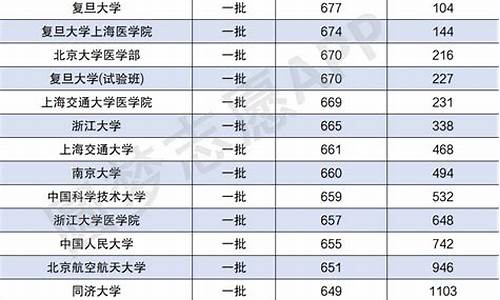您现在的位置是: 首页 > 教育资讯 教育资讯
2014英语高考模拟,2014年英语高考全国卷
tamoadmin 2024-05-22 人已围观
简介1.2014年6月14日英语四级全真模拟试题当我告诉父亲,我是到得梅因,爱荷华,他告诉了我他唯一的一次在那里的事情。它是在20世纪30年代,当他作为文学杂志的编辑在达拉斯,德克萨斯南卫理公会大学(SMU)在工作。他还曾在新加坡管理大学的教授,有一个学生在他的班上谁遭受严重的背部疾病。她什么都不能做,因为她家很穷。她的母亲住在加尔维斯敦寄宿公寓,一个海边小镇附近的休斯敦,德克萨斯。有一天当她在清理阁
1.2014年6月14日英语四级全真模拟试题

当我告诉父亲,我是到得梅因,爱荷华,他告诉了我他唯一的一次
在那里的事情。它是在20世纪30年代,当他作为文学杂志的编辑
在达拉斯,德克萨斯南卫理公会大学(SMU)在工作。他还曾在新加坡管理大学的教授,
有一个学生在他的班上谁遭受严重的背部疾病。她什么都不能做,因为她家很穷。
她的母亲住在加尔维斯敦寄宿公寓,一个海边小镇附近的休斯敦,德克萨斯。有一天当她
在清理阁楼(阁楼)碰到了一个老满是灰尘的手稿(手稿)
。在页面顶部有一句话,“亨利”。这是一个很好的故事,她送给她的
女儿。我的父亲从来读过这故事,但它
听起来像是亨利,他知道欧亨利曾住在休斯敦。因此它是可能的
那个著名的作者去了海滩,呆在四层公寓,
他写了她背后的事故。我的父亲去了
欧亨利专家在纽约哥伦比亚大学的认证,谁的故事了。我的父亲亨利着手出售。最终,他发现自己在得梅因,会议
加德纳Cowles,在得梅因的一个topeditor寄存器。考尔斯爱的故事了
在现场。我父亲花了钱的女孩。这是刚够她了
她迫切需要的操作。
我的父亲没有告诉我是什么.。但我怀疑这是否可能
比他自己的故事。
2014年6月14日英语四级全真模拟试题
成考快速报名和免费咨询: 湖南成人高考《高起专》英语模拟试题。相信现在考生都已经报名了,已经在准备复习了。那么为了帮助大家。湖南成考网给大家准备了关于湖南成人高考《高起专》英语模拟试题。供考生参考。
湖南成人高考《高起专》英语模拟试题三、完型填空
通读下面的短文,掌握其大意,然后从每题的四个选项中选出可以填入相应空白处的最佳选项。
It was the night before the composition was due. As I looked at the list of topics (题目) , "The Art of Eating Spaghetti (意大利面条) " caught my eye. The word "spaghetti" brought back the 36 of an evening at Uncle Alien' s in Belleville 37 all of us were seated around the table and Aunt Pat 38 spaghetti for supper. Spaghetti was an exotic (外来的) treat in 39 days. Never had I eaten spaghetti, and 40 of the grown-ups had enough experience to be 41 it. What laughing 42 we had about the 43 respectable method for moving spaghetti from plate to mouth. 44 , I wanted to write about that, but I wanted to 45 it down simply for my own 46 , not for Mr. Fleagle, my composition teacher. 47 , I would write something else.
When I finished it the night was half gone and there was no 48 left to write a proper composition for Mr. Fleagle. There was no choice next morning but to 49 my work. Two days passed before Mr. Fleagle returned the 50 papers. He said, "Now, class, I want to read you a composition, "The Art of Eating Spaghetti'.”
My words! He was reading my words out 51 to the whole class. 52 laughed, then the whole class was laughing with open-hearted enjoyment. I did my best not to show 53 , but what I was feeling was pure happiness, 54 my words had the power to make people 55 .
36. A. memory B. thought C. knowledge D. experience
37. A. when B. where C. since D. after
38. A. cooked B. served C. got D. made
39. A. their B. past C. last D. those
40. A. none B. one C. earns D. neither
41. A. careful about B. good at C. fond of D. interested in
42. A. speeches B. lessons C. sayings D. arguments
43. A. nearly B. naturally C. officially D. socially
44. A. Especially B. Probably C. Suddenly D. Fortunately
45. A. settle B. put C. bite D. let
46. A. work B. story C. luck D. joy
47. A. However B. Therefore C. As for him D. Except for that
48. A. time B. excuse C. way D. idea
49. A. give up B. continue C. hand in D. delay
50. A. written B. graded C. collected D. calmly
51. A. laid B. fast C. publicly D. calmly
52. A. People B. Nobody C. Somebody D. I
53. A. shock B. wonder C. worry D. pleasure
54. A. if B. for C. while D. although
55. A. excited B. satisfied C. think D. laugh
以上就是关于湖南成人高考《高起专》英语模拟试题(三)的全部内容,考生如想了解更多关于湖南成考资讯、报名时间、报名流程、报名入口、报名条件、现场确认等资讯,欢迎关注湖南成考网。
成考有疑问、不知道如何总结成考考点内容、不清楚成考报名当地政策,点击底部咨询官网,免费领取复习资料: 请回答(36)题__________.
A.accounted
B.ageing
C.ambition
D.damaging
E.decreasing
F.dramatically
G.effect
H.gradually
I.implicated
J.optimism
K.outstanding
L.pursuing
M.retirement
N.searched
O.tracked
28、 请回答(37)题__________.
29、 请回答(38)题__________.
30、 请回答(39)题__________.
31、 请回答(40)题__________.
32、 请回答(41)题__________.
33、 请回答(42)题__________.
34、 请回答(43)题__________.
35、 请回答(44)题__________.
36、 请回答(45)题__________.
Section B
Directions: In this section, you are going to read a passage with ten statements attached to it. Each statement contains information given in one of the paragraphs. Identify the paragraph from which the information is derived. You may choose a paragraph more than once. Each paragraph is marked with a letter. Answer the questions by marking the corresponding letter on Answer Sheet 2.
37、根据下列材料,请回答37-46题:
How Your Language Affects Your Wealth and Health
A. Does the language we speak determine how healthy and rich we will be? New research by Keith Chen of Yale Business School suggests so. The structure of languages affects our judgments and decisions about the future and this might have dramatic long-term consequences.
B. There has been a lot of research into how we deal with the future. For example, the famous marshmallow (棉花软糖. studies of Walter Mischel and colleagues showed that being able to resist temptation is predictive of future success. Four-year-old kids were given a marshmallow and were told that if they did not eat that marshmallow and waited for the experimenter to come back, they would get two marshmallows instead of one. Follow-up studies showed that the kids who were able to wait for the bigger future reward became more successful young adults.
C. Resisting our impulses for immediate pleasure is often the only way to attain the outcomes that are important to us. We want to keep a slim figure but we ~o want that last slice of pizza. Some people are better at delaying satisfaction than others. Those people have a better chance of accumulating wealth and keeping a healthy life style. They are less likely to be impulse buyers or smokers.
D. Chen's recent, findings suggest that an unlikely factor, language, strongly affects our future-oriented behavior. Some languages strongly distinguish the present and the future. Other languages only weakly distinguish the present and the future. Chen's recent research suggests that people who speak languages that weakly distinguish the present and the future are better prepared for the future. They accumulate more wealth and they are better able to maintain their health. The way these people conceptualize (概念. the future is similar to the way they conceptualize the present As a result, the future does not feel very distant and it is easier for them to act in accordance with their future interests.
E. Different languages have different ways of talking about the future. Some languages, such as English, require their speakers m refer to the future explicitly. Every time English-speaker stalk about the future, they have to use future markers such as "will". In other languages, such as Mandarin (汉语普通话., future markers are not obligatory. The future is often talked about similar to the way present is talked about and the meaning is understood from the context. Languages such as English constantly remind their speakers that future events are distant. For speakersof languages such as Mandarin, future feels closer. As aconsequent, resisting immediate impulses and investing for the future is easier for Mandarin speakers.
F. Chen analyzed individual-level data from 76 developed and developing countries. Tiffs data includes people's economic decisions, such as whether they saved arty money last year, the languages they speak athome, demographics (人口统计特征., and cultural factors such as "saving is an important cultural value for me". He also analyzed indvidual-level data on people's retirement assets, smoking and exercising habits, and general health in older age. Lastly. he analyzed national-level data that includes national savings rates, country GDP and GDP growth rates, country demographics, and proportions of people speaking different languages.
G. People's savings rates are affected by various factors such as their income, education level, age, religious affiliation(隶属关系. their countries' legal systems , and their cultural values. After those factors were accounted for, the effect of language on people's savings rates turned out to be big. Speaking a language that has obligatory future markers, such as English , makes people 30 percent less likely to save money for the future. This effect is as large as the effect of unemployment. Being unemployed decreases the likelihood of saving by about 30 percent as well.
H. Similar analyses showed that speaking a language that does not have obligatory future markers, such as Mandarin, makes people accumulate more retirement assets, smoke less, exercise more, and generally be healthier in older age. Countries' national savings rates are also affected by language. Having a larger proportion of people speaking a language that does not have obligatory future marker smakes national savings rates higher.









